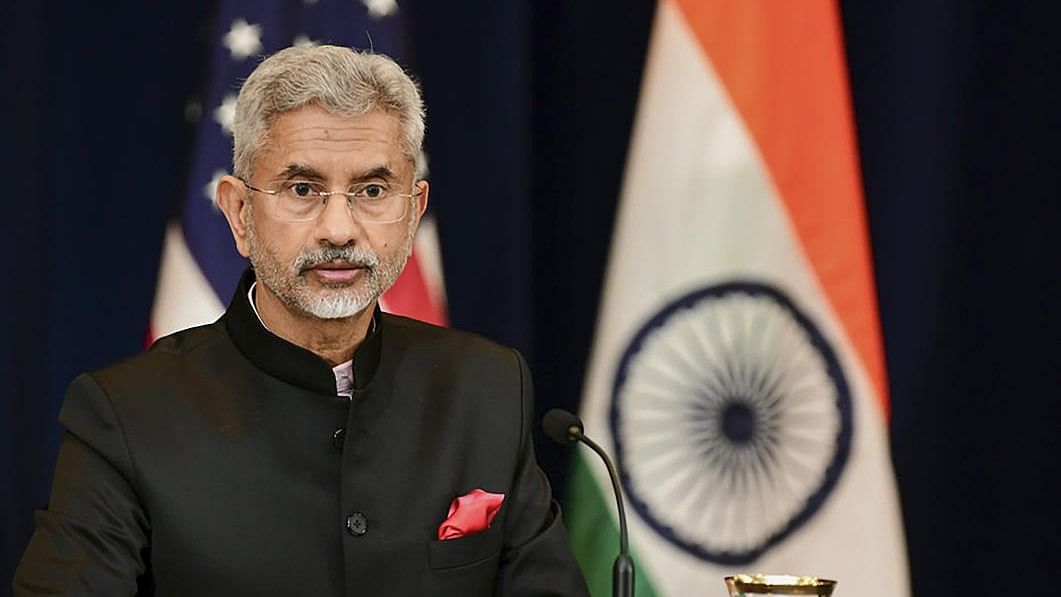
External Affairs Minister S Jaishankar.
Credit: PTI File Photo
China’s Confucius Institutes may have been under the scanner in India, but that has not stopped a parliamentary panel from citing them as a model to be studied to make the Indian Council of Cultural Relations (ICCR) project the nation’s soft power abroad more effectively.
The Ministry of External Affairs (MEA) too has taken note of the recommendation of the parliamentary panel for the constitution of a ‘study group’ to assess the working of the ICCR in comparison with the similar organisations of other nations, including the Confucius Institute of China. The parliamentary standing committee on external affairs wants the group to be mandated to formally study on a priority basis the best practices in soft power projections around the world. The committee is of the view that the learnings of the learnings from such a study must be factored in while formulating the strategy for the projection of the soft power of India.
Apart from the Confucius Institute of China, the parliamentary committee also asked the MEA to study the functioning of the British Council of the United Kingdom, the American Center of the United States, the Alliance Francaise of France and the Goethe Institute of Germany.
The parliamentary panel, which submitted a report to the Lok Sabha during the just-concluded session, was not much convinced by the “stereotype reply” of the MEA that the suggestion had been noted down. The report detailed the actions taken by the ministry on the committee’s earlier recommendations. It urged the ministry to conduct the study without delay.
The MEA informed the parliamentary committee that China was estimated to spend about US$ 10 billion a year just on its Confucius Institutes and soft power promotion in foreign countries. The Chinese Government’s United Front Works Department, which maintains relations with elite individuals and organisations in other countries, also had an annual budget of $ 2.6 billion. India’s ICCR and other agencies, on the other hand, spent around Rs 300-400 crores, the ministry conveyed to the panel.
The committee – headed by the ruling BJP’s Lok Sabha member P P Chaudhary – asked the government to increase the budgetary allocation of the ICCR by at least 20%.
China has since long been setting up Confucius Institutes in other countries as collaborative projects between the educational institutions in the communist country and the colleges and universities in foreign nations, professedly to promote its language and culture around the world. The Confucius Institutes are run by “Hanban” (Headquarters of Confucius Institutes), which is directly funded by the Ministry of Education of the Chinese Government.
The institutes, however, drew flak in the United States and the United Kingdom for being allegedly used by the Communist Party of China for overseas propaganda. They were also put under scanner in the US for their alleged role in espionage on behalf of China.
A few weeks after the stand-off between the Indian Army and the Chinese People’s Liberation Army in eastern Ladakh had reached a flashpoint with the June 15, 2020, violent clash between the soldiers of the two neighbouring nations at Galwan Valley, Prime Minister Narendra Modi’s government in New Delhi had moved for a comprehensive review of the functioning of the Confucius Institutes and Confucius Classrooms jointly established by China and seven universities and colleges in India – citing national security concerns. Beijing had sharply reacted and asked New Delhi to “treat Confucius Institutes and China-India higher education cooperation in an objective and fair manner, avoid politicizing normal cooperation, and maintain healthy and stable development of China-India people-to-people and cultural exchanges”.
The parliamentary committee also took note of the budgetary allocation for the British Council of the UK and the Goethe Institute of Germany. The MEA informed that the British Council received £179 million as a grant-in-aid from the UK Government and earned £ 845.5 million – mostly from language training and testing language skills – in 2021-22. The Goethe Institute’s also had an annual budget of approximately 370 million Euros, the ministry informed the committee.
